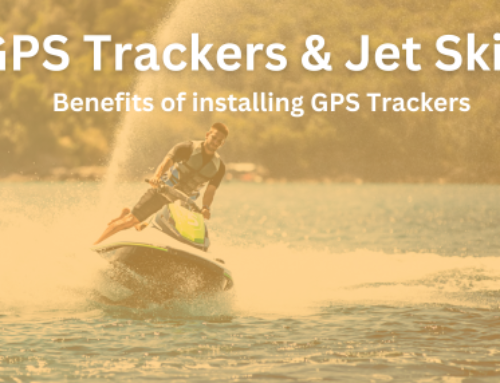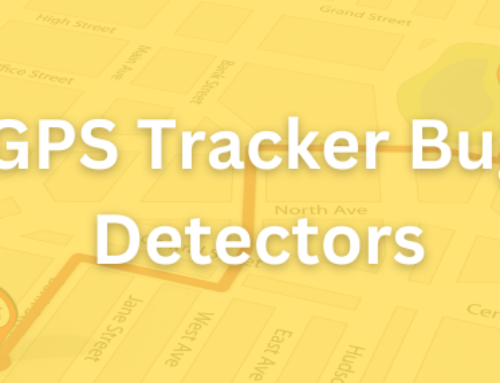In today’s fast-paced world, government transportation projects often face challenges in ensuring efficiency and accountability. However, with the advent of GPS trackers, these issues can be effectively addressed, leading to a revolution in the way such projects are managed. GPS trackers offer precise and real-time tracking of government vehicles, helping to monitor their location, speed, and route.
By incorporating GPS trackers into government transportation projects, authorities can enhance operational efficiency by optimizing routes, reducing fuel consumption, and minimizing downtime. Moreover, the data collected through GPS trackers promotes accountability and transparency. Government agencies can monitor vehicle usage, track driver behaviors, and ensure adherence to regulations and project timelines.
Beyond efficiency and accountability improvements, GPS trackers provide other valuable features such as geofencing capabilities and maintenance reminders. These features streamline operations, prevent unauthorized use of vehicles, and facilitate proactive maintenance scheduling.
As GPS technology advances and becomes more accessible, governments around the world are embracing its potential to drive innovation in transportation project management. By implementing GPS trackers, governments can elevate their infrastructure development efforts, resulting in significant cost savings and a more sustainable future for transportation systems.
Benefits of using GPS trackers in government transportation projects
Government transportation projects can greatly benefit from the use of GPS trackers. These devices provide numerous advantages that enhance efficiency, accountability, and overall project management. One of the key benefits is the ability to optimize routes. GPS trackers offer real-time traffic updates and suggest alternative routes, enabling government agencies to choose the most efficient paths for their vehicles. This not only saves time but also reduces fuel consumption and minimizes environmental impact.
Another advantage of GPS trackers is their ability to monitor vehicle usage and track driver behaviors. By collecting data on factors such as speed, acceleration, and braking patterns, government agencies can identify and address any unsafe driving practices. This promotes accountability and ensures compliance with regulations, resulting in safer transportation projects. Additionally, GPS trackers enable authorities to monitor project timelines by tracking vehicle arrival and departure times, ensuring that projects are completed within the allocated timeframes.
Furthermore, GPS trackers provide insights into vehicle maintenance needs. These devices can track mileage and engine hours, allowing for proactive scheduling of maintenance tasks. By staying ahead of maintenance requirements, government agencies can prevent breakdowns and minimize downtime, further increasing operational efficiency.
Case studies showcasing successful implementation of GPS trackers in government transportation projects
Several government transportation projects have successfully implemented GPS trackers to enhance efficiency and accountability. One such example is the city of Los Angeles, which incorporated GPS trackers into their bus fleet. By tracking the location and movement of each bus in real-time, the city was able to optimize routes, reduce fuel consumption, and improve overall service quality. The data collected through GPS trackers also helped authorities identify areas with high demand and adjust bus schedules accordingly.
In another case study, the state of Ohio implemented GPS trackers in their snowplow fleet. By tracking the location and movements of the snowplows during winter storms, the state was able to efficiently allocate resources, prioritize routes, and ensure timely snow removal. This not only improved the safety and accessibility of roads but also reduced costs associated with unnecessary plowing.
These case studies highlight the tangible benefits of GPS trackers in government transportation projects. By leveraging the power of real-time data and location tracking, government agencies can optimize their operations, improve accountability, and deliver better services to their constituents.
How GPS trackers enhance efficiency in government transportation projects
GPS trackers play a crucial role in enhancing efficiency in government transportation projects. By providing real-time location updates, these devices enable authorities to track the progress of vehicles and make informed decisions regarding route optimization. By choosing the most efficient paths, government agencies can reduce travel time, save fuel, and minimize delays.
Moreover, GPS trackers offer features such as geofencing capabilities, which allow agencies to set virtual boundaries for their vehicles. This helps prevent unauthorized use of government vehicles and ensures that they are utilized solely for project-related purposes. By eliminating unauthorized usage, agencies can optimize their resources and allocate them to the areas where they are most needed.
Additionally, GPS trackers provide valuable data on vehicle performance and maintenance needs. By monitoring factors such as mileage, engine hours, and diagnostic codes, government agencies can proactively schedule maintenance tasks, reducing the risk of breakdowns and minimizing downtime. This proactive approach not only enhances efficiency but also extends the lifespan of government vehicles, resulting in cost savings in the long run.
How GPS trackers improve accountability in government transportation projects
Accountability is a crucial aspect of government transportation projects, and GPS trackers play a significant role in ensuring transparency and adherence to regulations. By tracking vehicle movements and collecting data on driver behaviors, government agencies can monitor and address any instances of non-compliance or unsafe driving practices.
GPS trackers provide real-time insights into factors such as speed, acceleration, and braking patterns. This data can be analyzed to identify any instances of reckless driving or non-compliance with speed limits. By addressing these issues promptly, government agencies can maintain a high level of accountability and ensure the safety of both drivers and the public.
Furthermore, GPS trackers enable authorities to monitor project timelines by tracking vehicle arrival and departure times. This ensures that transportation projects are completed within the allocated timeframes, preventing delays and cost overruns. The ability to monitor project progress in real-time promotes transparency and accountability, as it allows stakeholders to assess the efficiency of government transportation projects.
Factors to consider when choosing GPS trackers for government transportation projects
When selecting GPS trackers for government transportation projects, certain factors need to be considered to ensure optimal performance and compatibility. First and foremost, it is essential to choose trackers that offer reliable and accurate location tracking. The precision of the GPS technology employed by the trackers is crucial to ensure the effectiveness of route optimization and monitoring tasks.
Another factor to consider is the scalability and compatibility of the GPS trackers. Government transportation projects often involve a large fleet of vehicles, and it is important to choose trackers that can handle the scale of the project. Additionally, compatibility with existing fleet management systems and software is crucial to ensure seamless integration and data synchronization.
Furthermore, it is vital to consider the durability and ruggedness of the GPS trackers. Government vehicles are subject to harsh conditions and varying weather conditions, and the trackers must be able to withstand such environments. Choosing trackers that are built to withstand extreme temperatures, moisture, and vibrations will ensure their longevity and reliability.
Best practices for implementing GPS trackers in government transportation projects
Implementing GPS trackers in government transportation projects requires careful planning and execution. To ensure successful implementation, it is important to follow best practices that have been proven effective in similar projects. One of the key practices is to involve all stakeholders from the outset. This includes government officials, project managers, drivers, and IT personnel. By involving all relevant parties, potential challenges and concerns can be addressed early on, ensuring a smoother implementation process.
Training and support for using GPS trackers is another crucial aspect of successful implementation. Government agencies should provide comprehensive training to drivers and other personnel who will be using the trackers. This includes familiarizing them with the features and functionalities of the trackers, as well as educating them on the importance of data accuracy and safe driving practices. Ongoing support should also be provided to address any technical issues or questions that may arise.
Additionally, it is important to establish clear policies and guidelines regarding the use of GPS trackers. This includes defining how the data collected will be used, ensuring compliance with privacy regulations, and outlining consequences for non-compliance or misuse of the trackers. Clear communication of these policies to all stakeholders is essential to promote transparency and ensure accountability.
Training and support for using GPS trackers in government transportation projects
Training and support for using GPS trackers in government transportation projects are crucial for successful implementation and utilization of these devices. Government agencies should invest in comprehensive training programs that cover the features, functionalities, and best practices for using GPS trackers. This training should be provided to all personnel involved in the project, including drivers, project managers, and IT personnel.
The training program should include hands-on demonstrations, interactive sessions, and practical exercises to familiarize users with the operation of the trackers. It should also cover topics such as data accuracy, privacy regulations, and safe driving practices. By providing comprehensive training, government agencies can ensure that users have the necessary knowledge and skills to effectively utilize the GPS trackers.
In addition to training, ongoing support should be provided to address any technical issues or questions that may arise during the implementation and usage of GPS trackers. This can be in the form of a dedicated support team or a help desk that users can contact for assistance. Prompt and effective support will help resolve any issues quickly and minimize disruptions to the transportation projects.
Furthermore, government agencies should establish a feedback mechanism to gather user input and suggestions for improvement. This can be in the form of surveys, regular meetings, or an online platform where users can share their experiences and provide feedback. This feedback can be invaluable in identifying areas for improvement and ensuring that the GPS trackers meet the specific needs of government transportation projects.
Potential challenges and how to overcome them when using GPS trackers in government transportation projects
While GPS trackers offer numerous benefits, there can be challenges associated with their implementation and usage in government transportation projects. One of the potential challenges is resistance to change from drivers and other personnel. Some individuals may be hesitant to adopt new technology or may perceive it as a threat to their privacy. To overcome this challenge, it is important to provide comprehensive training and clear communication regarding the benefits of GPS trackers. By addressing any concerns and demonstrating the value of the technology, resistance can be minimized.
Another challenge is ensuring data accuracy and reliability. GPS trackers rely on satellite signals to determine location, and factors such as urban canyons, tunnels, or dense foliage can interfere with the accuracy of the data. To overcome this challenge, government agencies should choose GPS trackers that offer advanced signal processing capabilities and can handle such challenging environments. Regular calibration and maintenance of the trackers are also essential to ensure accurate and reliable data.
Privacy concerns can also pose a challenge when using GPS trackers in government transportation projects. To address this, government agencies should establish clear policies and guidelines regarding data usage and privacy. These policies should comply with relevant regulations and clearly define how the data collected will be used and protected. By ensuring transparency and addressing privacy concerns, government agencies can alleviate any apprehensions and ensure the successful implementation of GPS trackers.



